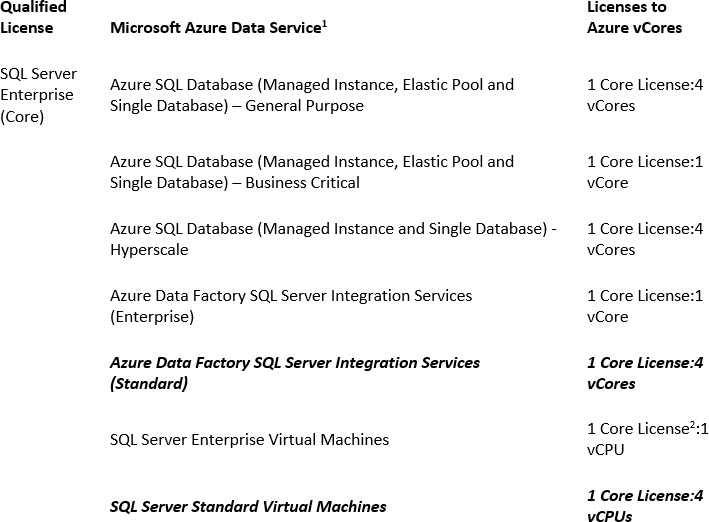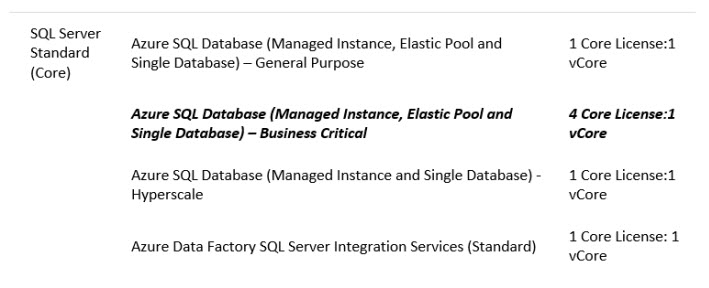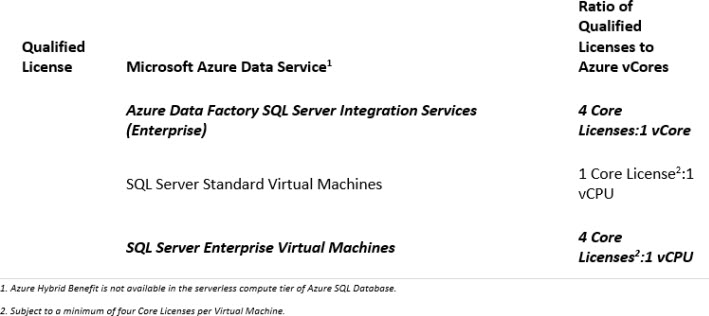Microsoft recently expanded the rights for Azure Hybrid Benefit for SQL Server. For customers not familiar with Azure Hybrid Benefit, it’s a licensing benefit that allows you to use your on-premises Software Assurance-enabled Windows Server and SQL Server licenses on Azure. The cost benefits are attractive to customers and it’s just one more way Microsoft is trying to convince customers to run their software on Azure.
This rights expansion effectively gives customers with SQL Server Enterprise and Standard licenses access to a broader pool of SQL Server services on Azure. The increased flexibility reduces costs and gives customer access to advanced Enterprise features. However, as noted previously, you must have active Software Assurance to benefit.
Azure Hybrid Benefit for SQL Server – What’s Changed?
There have been two specific changes per Microsoft’s announcement:
- Prior to this change, editions of Azure Virtual Machines and Azure Data Factory SQL Server Integration Services have only been compatible with the matching editions of eligible SQL Server licenses. The rights have been expanded as follows:
- Standard Edition: Azure Hybrid Benefit may cover SQL Server Enterprise Virtual Machines and Azure Data Factory SQL Server Integration Services Enterprise edition
- Enterprise Edition: Azure Hybrid Benefit may cover SQL Server Standard Virtual Machines and Azure Data Factory SQL Server Integration Services Standard edition
- For Standard edition, Azure Hybrid Benefit for SQL Server is applicable to options for Azure SQL Database, as well as:
- Azure SQL Database (Elastic Pool and Single Database) – Business Critical
- Azure SQL Managed Instance (Instance Pool and Single Instance) – Business Critical
Microsoft provides the below table to show how many vCore/vCPU licenses you get in Azure for different Azure Data Services for each core SQL Server license. The changes are highlighted in bolded, italicized text.


Azure Hybrid Benefit Puts the Spotlight on SAM
Microsoft is taking several measures to motivate customers to run Microsoft software on Microsoft’s cloud. Some are more punitive (see my colleague’s post on remote hosting), while others – like Azure Hybrid Benefit – take a positive reinforcement approach.
However, it’s not without risk. Strong internal software asset management processes are required to manage the fluidity between on-premise and cloud assets. As we’ve written about before, Microsoft is great at identifying customers that lack strong SAM hygiene and targeting them with software license audit activity.
If you’re interested in learning how Azure Hybrid Benefit could impact costs (and compliance) across your Microsoft estate, let us know.
RELATED CONTENT
- Blog: Microsoft Azure Hybrid Benefit – Great Way to Save on Cloud or Compliance Trojan Horse?
- Blog: Microsoft Licensing on AWS – More Insights on Changes to Remote Hosting and Your Options
- Bulletin: Microsoft End of Support Update 2021 – Which Products are Up Next and How to Prepare
- Bulletin: 5 Tips for Negotiating a Microsoft Enterprise Agreement
- NPI Service: Microsoft Volume Licensing and Cost Optimization

